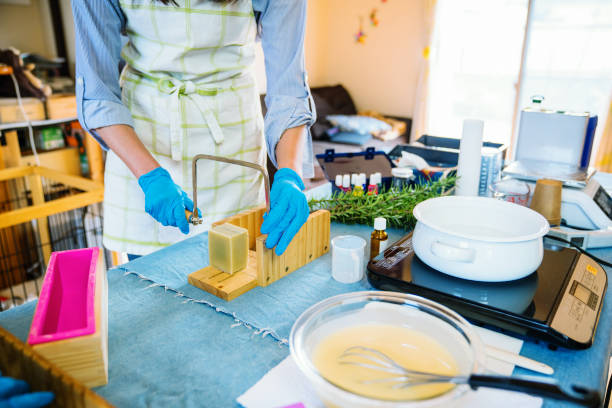Have you ever wondered about the potential of starting a soap-making business? Maybe you’re seeking a way to earn extra money or have always been curious about creating your soap. What if I told you that soap-making isn’t only a creative hobby, it’s also an incredibly profitable and sustainable business opportunity, even for beginners in Nigeria?
With Nigeria’s growing demand for personal care products, coupled with its rich natural resources, starting a soap-making business could be a game-changer for anyone looking to dive into entrepreneurship. Whether you are a student, a stay-at-home parent, a recent graduate, or someone with a side hustle mentality, you don’t need to worry about a huge startup capital.
You can start small and grow steadily, offering affordable yet high-quality soaps to local markets, beauty salons, or even online platforms.
Curious to know more? Let’s take a closer look at the world of soap-making and how you can turn this into a thriving business in Nigeria.
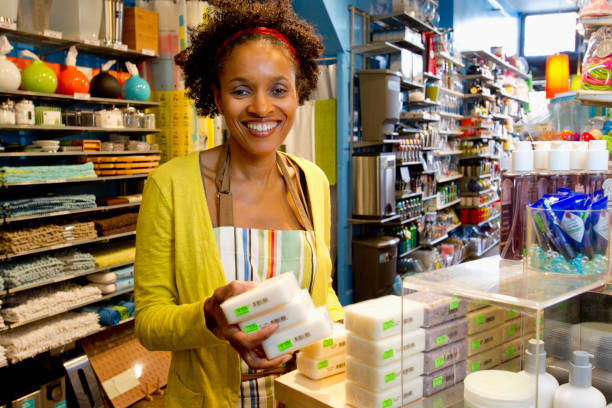
What is Soap Making?
Soap making is the process of turning natural oils, fats, or butters into soap through a chemical reaction known as saponification. When combined with an alkaline solution like caustic soda (lye) and water, these oils or fats produce soap.
This process can be done using different methods like cold process, hot process, or melt-and-pour, but for beginners, starting with simpler techniques can be an excellent way to ease into the business.
In Nigeria, soap is used not just for personal hygiene, but also for various other purposes such as cleaning and laundry. Soap making has become a popular business due to the increased awareness of personal care, and more people are seeking natural and chemical-free options.
From organic soaps to beauty bars and antiseptic soap, there’s a wide range of soap types that appeal to different markets. What’s more, soap-making doesn’t require expensive tools or equipment, making it an accessible business idea for many Nigerians.
Related Posts:
- 13 Cheapest Business Ideas in Nigeria for Youth Empowerment
- 8 Best Offline Business Ideas for Retirees in Nigeria
- How to Start a Clothing Brand Business
- Shoe-making Business in Nigeria: How to Make and Sell Shoes
Steps on How to Start a Soap Making Business: Budget-Friendly for Nigerians
Step 1. Understand the Soap Market in Nigeria
Before diving into soap making, it’s crucial to understand the market. Soap is an essential product in every Nigerian home, and the demand is constantly growing.
The soap market in Nigeria is not only huge but also diverse, catering to a wide range of consumer needs. These include beauty soaps, laundry soaps, antiseptic soaps, and even medicinal or organic soaps. Depending on your target market, there’s always room for unique soap products that solve specific problems, like skin irritation or acne.
By understanding the soap market and consumer preferences in your region, you can tailor your products to meet these needs. For example, organic soaps made from locally sourced natural ingredients like shea butter and palm kernel oil are highly popular, especially in urban areas.
Do some research, talk to people around you, and explore existing soap brands to get an idea of where your soap can stand out.
1. Knowing Different Categories of Soap in Nigeria
Nigeria’s soap market is divided into various categories, and it’s essential to know which ones to target. Here’s a breakdown:
A. Beauty Soaps: These soaps are made to enhance the skin’s health and appearance. People prefer these soaps for moisturizing, brightening, or addressing skin conditions like acne.
B. Antiseptic Soaps: These soaps are in high demand, especially in a country where hygiene awareness is rising. Antiseptic soaps are used for both skin care and general cleaning purposes.
C. Organic Soaps: With an increasing awareness of the harmful effects of chemicals, Nigerians are shifting towards organic soaps made from natural ingredients like shea butter, coconut oil, and palm kernel oil.
D. Laundry Soaps: Though mostly used for cleaning clothes, there’s still a significant market for affordable, high-quality laundry soaps, especially in local communities and rural areas.
Knowing which type of soap to produce and sell is key to positioning your business for success.
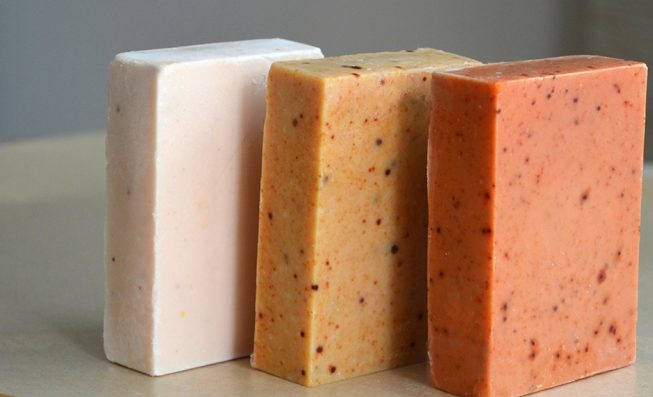
2. Analyze Local Competitors and Pricing Strategies
Analyzing your local competitors helps you understand pricing, what they offer, and what you can do better. Take note of the brands that are doing well and see how they price their products. You don’t have to mimic them exactly, but it will give you a good sense of what works in the local market.
You might also want to consider offering your soap at an affordable price point to attract budget-conscious customers. For instance, while high-end beauty soaps might be sold at a premium, basic soap varieties can be sold at lower prices, making them accessible to a larger audience.
3. Identifying Your Target Market
The next step in starting your soap-making business is identifying who your customers are. Your target market could include:
A. Urban Households: People living in cities, who are willing to pay for high-quality beauty or organic soaps.
B. Salons and Spas: Many beauty businesses use specialized soaps in their services. This is a great niche to target if you’re making beauty soaps or organic skincare soaps.
C. Local Markets: People in rural areas or smaller towns may be more inclined to buy affordable, functional soaps for household and laundry purposes.
D. Mini-Marts or Stores: Partnering with local shops can help you reach customers who prefer buying from a retail outlet.
By understanding your target market, you can create soaps that meet their specific needs.
4. How Much Does It Cost to Start a Soap Business in Nigeria?
The cost of starting a soap-making business in Nigeria varies depending on the scale at which you want to begin. You can start with as little as ₦5,000 for small-scale production, especially if you’re making liquid soap or simple bar soaps.
However, to create a broader range of products, you might need between ₦100,000 – ₦150,000 to cover ingredients, equipment, packaging, and marketing expenses.
For a smaller-scale, budget-friendly startup, you can begin with a simple recipe and use local markets for sourcing affordable materials. As your profits grow, you can reinvest in more advanced tools and expand your product offerings.
5. Types of Soaps in Nigeria
In Nigeria, there are several types that you can choose from:
A. Bar Soap: The most common soap form, often used for bathing and laundry.
B. Liquid Soap: In high demand, especially for cleaning purposes. It’s also easy to make and very popular among consumers.
C. Black Soap: Known for its natural and skin-friendly properties, black soap is a popular choice in Nigeria for its healing and anti-inflammatory benefits.
D. Laundry Soap: Typically produced in large quantities and sold at affordable prices for washing clothes.
When starting, it’s advisable to focus on one type of soap and perfect your formula before expanding to other products.
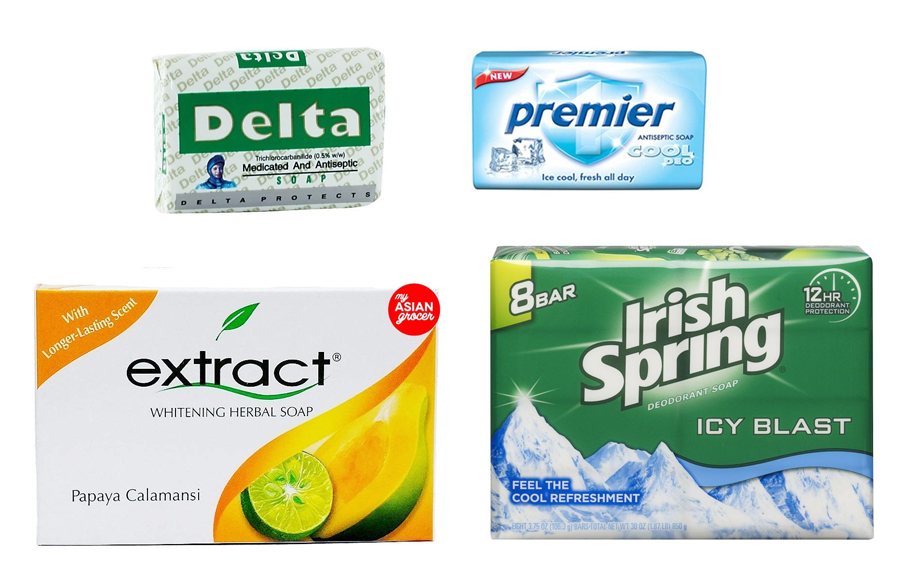
Step 2. Choose the Right Type of Soap to Start With
1. Cold Process vs. Hot Process vs. Melt & Pour Methods
When it comes to soap making, there are different methods you can use. The choice of method depends on your experience, resources, and the kind of soap you want to produce:
A. Cold Process: This method involves mixing oils with lye and letting the soap cure over time. It’s great for beginners who want to experiment with different oils and scents.
B. Hot Process: This method uses heat to accelerate the saponification process. It’s faster than the cold process, but can be more complex.
C. Melt & Pour: This is the easiest method for beginners. You melt pre-made soap base and add your colors, scents, and ingredients. It’s quick and cost-effective, making it a popular choice for small businesses.
For beginners, melt & pour is the best method to start with. It requires minimal expertise and is less time-consuming.
2. Budget-friendly Options: Liquid Soap, Black Soap, and Bar Soap
As a beginner, you may want to focus on making liquid soap, black soap, or bar soap because they are not only popular but also cost-effective.
Liquid soap requires fewer ingredients and is a great product to sell in bulk. Black soap, on the other hand, is natural and in high demand among customers who prefer chemical-free skincare options.
Bar soaps, while classic, require some experience to perfect, but once you get it right, they can be very profitable.
3. Starting with One Product Before Expanding Your Line
When starting your soap business, it’s wise to begin with one product. This allows you to focus on perfecting that product before expanding to other types. For example, you could start by selling liquid soap, then gradually expand to bar soaps or beauty soaps once you have gained more experience.
Step 3. Create a Simple Business Plan
A business plan is essential to guide your soap-making venture. While you don’t need an overly complex plan at first, you should clearly define your goals, budget, and marketing strategies.
1. Estimate Start-up Costs (Equipment, Ingredients, Packaging, Branding)
Estimate how much you’ll need to get started. This includes the cost of raw materials (caustic soda, oils, fragrance oils, etc.), equipment (mixing tools, molds), and packaging (plastic bottles, stickers). Don’t forget to factor in the cost of branding, even if it’s just a simple logo at first.
2. Set Basic Pricing and Profit Margins
Price your products competitively. For example, a 500ml bottle of liquid soap might cost around ₦1000 – ₦1,500, depending on the quality of ingredients and packaging. Set a profit margin that covers your costs and allows room for growth.
3. Include a Simple Marketing and Growth Plan
Think about how you’ll market your soaps. Will you sell online? Offline? Through local stores? Make sure to have a plan to grow your business and reach more customers as your sales increase.
Step 4. Register Your Business (Optional for Beginners)
1. Advantages of Business Registration with CAC
While it’s not mandatory to register your business in the beginning, doing so with the Corporate Affairs Commission (CAC) gives you legitimacy. It also helps you access financial support from banks or other lending institutions as you grow.
2. How to Register Your Soap Brand When You’re Ready to Scale
Once your soap business grows, registering with CAC becomes necessary to protect your brand and intellectual property.
3. Licensing and NAFDAC Considerations (for Later Stages)
For larger businesses, registering with NAFDAC (National Agency for Food and Drug Administration and Control) is required, especially for products marketed as therapeutic or for skincare purposes.

Step 5. Budget-Friendly Sourcing of Ingredients and Tools
1. Where to Buy Affordable Raw Materials in Nigeria
Local markets in Ikeja, Abuja, Port Harcourt, and other major cities are great places to source raw materials. There are also online suppliers where you can buy ingredients in bulk, often at cheaper prices. Places like Elsie Organic and Ubuy Nigeria sell organic material that you can order from.
2. Basic Materials Needed for Soap Making
For soap making, you’ll need basic materials such as:
- Caustic soda (lye)
- Oils like palm kernel oil, coconut oil, or olive oil
- Water
- Fragrance oils
- Soap molds
3. DIY vs. Outsourcing Soap Molds and Packaging
You can make simple soap molds from affordable materials or buy ready-made molds from online vendors. Packaging, too, can be DIY at first (using simple plastic or paper wrappers), and later, you can upgrade to branded, professional packaging as your business grows.
Step 6. Learn the Soap-Making Process
Soap making involves several steps, from mixing ingredients to curing the soap. Here’s a basic process:
- Mix lye with water (take precautions as this can be caustic).
- Heat the oils (like palm kernel oil, coconut oil, etc.).
- Combine the oils and lye and blend until you achieve a smooth mixture.
- Add fragrance oils and colorants (optional).
- Pour into molds and allow to set or cure.
It’s important to practice small batches first, so you can refine your technique before mass production.
Step 7. Packaging & Branding on a Budget
1. Affordable Ways to Package and Label Soap
You can use inexpensive packaging materials, such as simple plastic containers, plastic wraps, or recyclable materials. As your business grows, you can invest in customized labels and more attractive packaging.
2. Importance of Attractive Branding Even at the Small Scale
Even at the beginning stage, your soap’s packaging and branding should stand out. Use clear labels with your brand name, product details, and benefits. The goal is to make your soap easily recognizable.
3. Crafting a Brand Story
A compelling brand story that connects with local customers can build trust. Share the story behind your soap, especially if you use local ingredients or make your soap using traditional methods.
Step 8. Start Selling: Online & Offline Strategies
1. Sell to Neighbors, Friends, Churches, Schools, Salons, and Local Stores
Start by selling directly to your network. Offer free samples to friends, family, and local businesses, and encourage them to share your product with others.
2. Use WhatsApp, Instagram, and Facebook Marketplace
Social media is a powerful tool to reach a wider audience. Post photos of your soaps, share customer reviews, and offer promotions to attract buyers.
3. Joining Local Fairs and Vendor Events
Participate in local markets, trade fairs, and community events to showcase your soaps and interact with potential customers.
Step 9. Scaling & Diversifying
As your soap-making business grows, consider reinvesting profits to purchase better equipment, hire support, or diversify into related products like air fresheners or cleaning products. Expansion will bring new challenges, but it’s an exciting step in your entrepreneurial journey.
Common Challenges & How to Overcome Them
Starting a soap-making business in Nigeria can be profitable, but it comes with a few struggles. Here’s how to spot and solve them fast:
1. Inconsistent Soap Quality
Issue: Soap comes out too soft, too hard, or changes color.
Solution:
- Always measure ingredients accurately.
- Use quality materials from trusted suppliers.
- Keep records of each batch.
- Test new ideas in small batches.
2. Low Market Visibility
Issue: People don’t know you sell soap.
Solution:
- Create a unique brand and name.
- Post your products on social media (WhatsApp, Instagram, Facebook).
- Attend local markets and events.
- Set up a simple online store or use marketplaces like Jumia.
3. Confused About Pricing
Issue: You’re not sure how much to charge.
Solution:
- Calculate your total cost (materials + time + packaging).
- Check what others are charging.
- Highlight the value (e.g., natural, skin-friendly).
4. Ignoring Safety and Regulations
Issue: Risk of customer complaints or fines.
Solution:
- Properly label your soap (ingredients, expiry, warnings).
- Register with NAFDAC if you want to scale.
- Wear gloves and work safely with chemicals.
- Take a basic soap-making course if needed.
5. Poor Money and Stock Management
Issue: Running out of ingredients or mismanaging funds.
Solution:
- Track what you produce and use.
- Focus on best-selling soaps.
- Keep business money separate from personal.
- Start small and scale gradually.
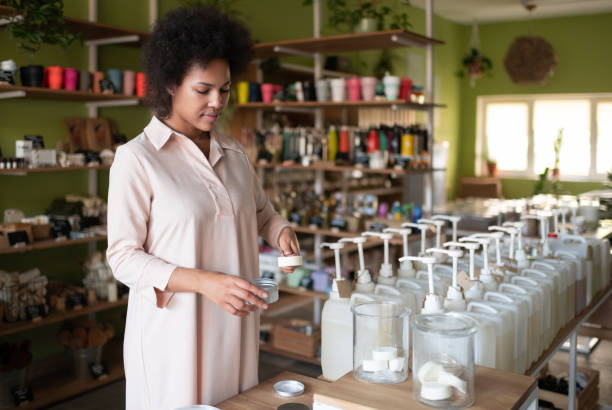
Soap-Making Business Frequently Asked Questions and Answers
1. Is soap making a profitable business?
Yes, soap-making can be a highly profitable business if you produce quality products, set competitive prices, and market well.
2. How to make soap to sell in Nigeria?
You can start by learning the basic soap-making process and experimenting with different recipes to create soaps that your target market will love.
3. What is the main ingredient in soap-making?
The main ingredients in soap-making are oils (such as palm kernel oil, coconut oil) and caustic soda (lye).
4. Can I start a soap business with ₦10,000 or ₦50,000?
Yes, you can start with ₦10,000 or ₦50,000 if you focus on small-scale production, using affordable raw materials and equipment.
Conclusion
Soap making can be a fun, creative, and highly profitable business to start, especially in a market like Nigeria. With low start-up costs and raw materials available locally, you have everything you need to begin your soap-making journey.
Keep things simple at first, focus on quality, and gradually expand as you gain experience. Over time, your small soap business can blossom into a full-scale operation, and who knows? You could even end up creating the next big soap brand in Nigeria!
If you found this guide helpful, please consider supporting us by subscribing to our newsletter, liking it, and sharing it with others.

